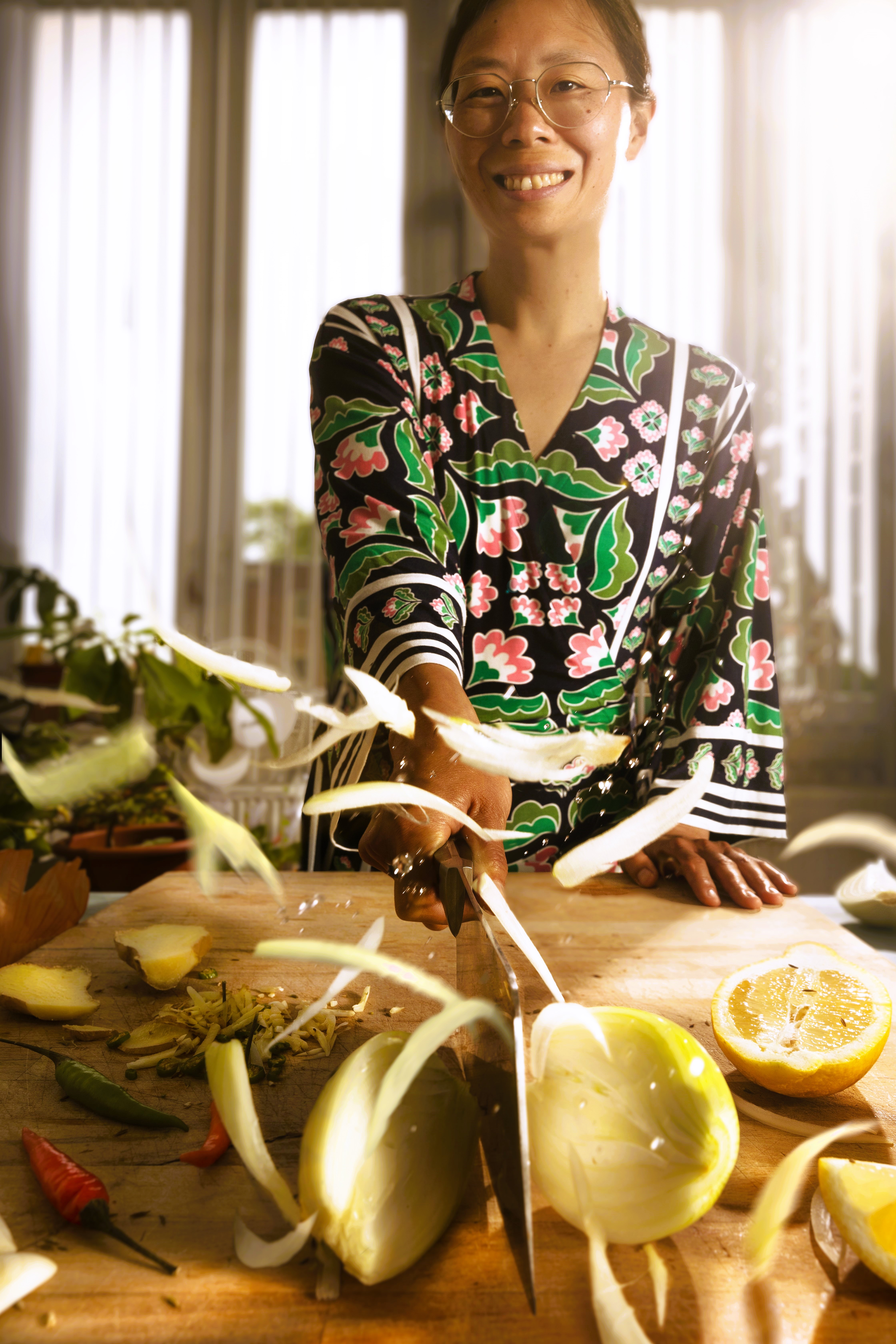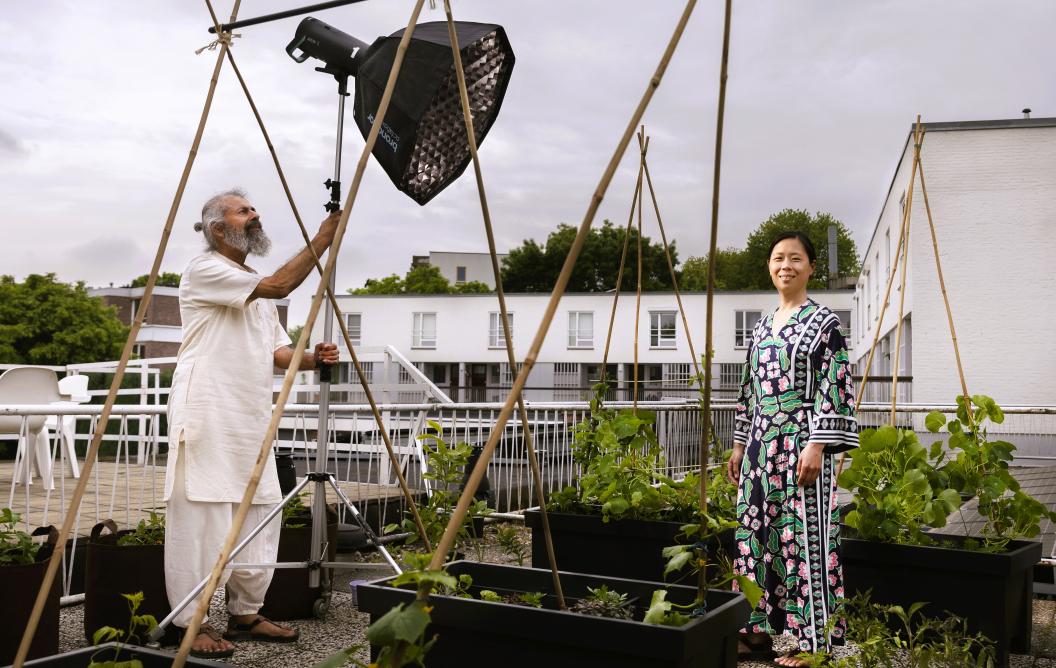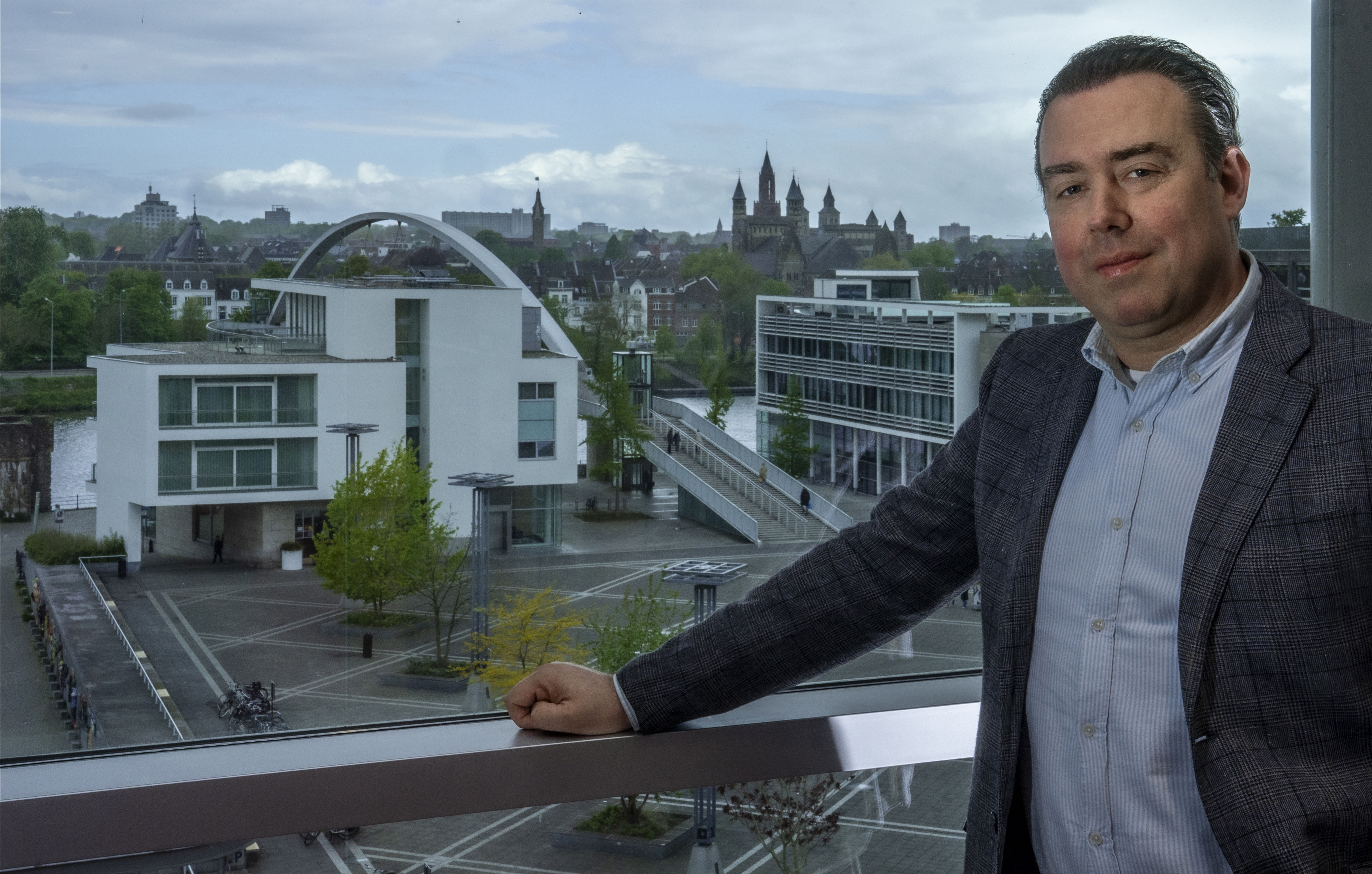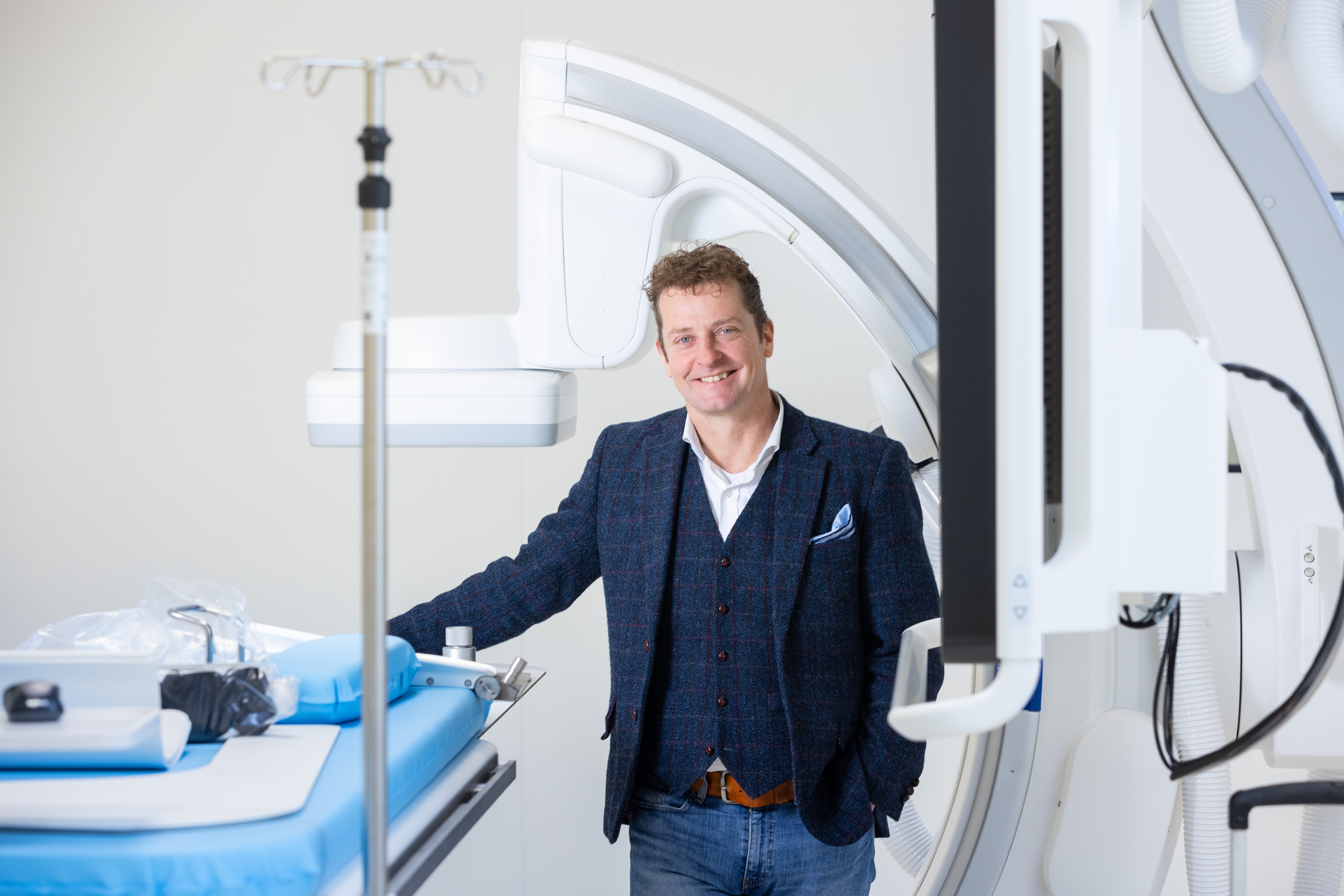“Your body knows what it needs”
After roaming the world, Alice Pan moved to Maastricht in 2020 for the master’s in International Business. She is now a coordinator at EDLAB - the Maastricht University Centre for Teaching & Learning. She previously worked as a tutor in the International Business bachelor programme, an English teacher, a massage therapy instructor, and an importer of traditional Tibetan Buddhist handicrafts. With her partner Aatman, she even ran an ashram and a farm in New York State. “I have a practical background, combined with a holistic view of life. I love the Ayurvedic style of cooking I learned from Aatman. Your body has wisdom; if you learn to listen to it, it will tell you what it needs.”
Their open-plan kitchen/living room is small but cosy, teeming with cuttings and plants that will soon move to the balcony. Last year they began growing their own vegetables and herbs. The evidence of that successful harvest can be seen in the bumper crop of dried red chili peppers. “I did my master’s during the corona period, which was tough. I almost burned out. What got me through it was planting seeds and seeing the natural growth process, not something produced by my own mind. Those plants kept me going.”
Digestive fire
Every morning they drink chai, which Aatman brews himself. “He boils fresh herbs in water, then adds black tea and milk, and honey.” Breakfast usually consists of seasonal fruit and yoghurt smoothies.
Ayurvedic cooking focuses on the digestion process. “I compare it with a digestive fire. If you have a strong digestive fire, it fuels all the other processes in the body. Balanced food strengthens and balances the fire. Too spicy is not good, too cold is not good. Milk, cheese—they dampen your digestive fire. Onions, garlic, ginger and mild chili peppers form the ideal basis in Ayurvedic cuisine. Your body has wisdom; if you learn to listen to it, it will tell you what it needs. Maybe your mind says it wants chocolate, but that’s not what your body really needs. Your body wants something nourishing, but your stressed-out mind says: give me something sweet or caffeine.”
Aatman has made us an aromatic rice dish for lunch. “He comes from Northern India and makes the most delicious biryani. When I cook, I go by what I feel I want to eat, not so much by plan. Sometimes it’s pasta, because I grew up with American food, sometimes pizza. Or I make my mother’s Taiwanese flat bread, which is very similar to Indian flat bread. I enjoy exploring the wisdom of different culinary wellbeing traditions”
Taiwanese roots
Pan was born and raised in Princeton, New Jersey. Her parents are both from Taiwan and went to America for their PhDs; her father chemical engineering, her mother genetics. “My mother taught my sister and me to bake all sorts of things: cookies, cakes, pies, bread. Not cooking, though. Even while raising three kids, she always did the cooking by herself. So when I went to college, I could barely fry an egg. My mom mainly cooked Taiwanese food. Many different forms of tofu—I've never liked meat. Fried with vegetables: peppers, beans with soy sauce and sesame oil, occasionally a bit of ginger and garlic. Simple food, but always fresh and healthy.
“I do miss my mom’s cooking, and I never manage to replicate the deliciousness of even simple things, like the way she used to make me a scrambled egg with soy sauce for protein on the morning of a big exam. It’s not the technique that I lack, but the compassion and love she puts into it. I think I learned to care for others from her first, even before I met Aatman. From Aatman, I learned that caring is universal.”

Alice Pan
Alice Pan obtained her bachelor’s in Fine Arts from Columbia University, her massage therapy education from the Finger Lakes School of Massage, and her master's in International Business – Organization: Management, Change and Consultancy from Maastricht University. She was appointed coordinator of the Education Research Area of Expertise at EDLAB in 2022.

Hidden feelings
Pan was raised in an intellectual household with traditional Asian values. “My parents were good providers, but emotionally it was more difficult. Because in Asian culture, it is more common for parents to show their love through being responsible caregivers than through words or affection. I missed that and I had to find my own way. I studied Fine Arts and massage therapy, and started practicing meditation. Aatman reminds me that it’s up to me to live in the way I find meaningful, because it’s only then I can be truly happy and share that happiness with those around me.”
Quest for spirituality
After studying Fine Arts in New York, she met Aatman at a farmer’s market where he was helping a friend who sold cookies and muffins. “I saw how everyone who got a cookie from him left with a smile. There was such a happy energy there. Later when I joined his ashram, Aatman saw that I liked to cook, even though I didn't know how, and he put me in the kitchen. He taught me that it was an intuitive process: smelling and tasting and really feeling the whole process of preparing food. As an artist I love being creative, to make things using all my senses. So I was always in the kitchen, that magical world where you could make delicious things to share with others. Making people feel good, cared for, and nourished and at ease. I loved that.”
Community gardener
Eventually, the pair hopes to find a place outside Maastricht like the one they once enjoyed in Ithaca. “We used to raise everything there: chickens, birds, bees, plants, vegetables, flowers. We want to create a space again where people feel welcome to connect with themselves and each other in nourishing ways.”
Writing her master’s thesis brought her full circle, with a renewed challenge to unite her holistic, intuitive worldview with that of the scientific world “I discovered that thanks to my upbringing I have a strong analytical side, as well as a very intuitive side. Both sides are important for research. When I joined EDLAB last year, my role was described as a ‘knowledge broker’. Now I’d like to call myself more of a ‘community gardener.’”
Text: Annelotte Huiskes
Photography: Arjen Schmitz
Also read
-
What does it mean to live and work in a city with an international university? When do you notice the university, and how does it benefit you? We asked Maastricht native Stefan Vrancken (50), who works as an associate notary. In his spare time, Vrancken is also an amateur historian and genealogist...
-
Dani Shanley and Joshi Hogenboom on synthetic data, the pains and gains of interdisciplinarity, and why AI likely won’t release us from having to study the world we live in.
-
Lee Bouwman, a vascular surgeon and endowed professor of Clinical Engineering, specialises in the implementation of groundbreaking healthcare technologies. The key to success, he says, lies in the collaboration between engineers and clinicians. This approach has already resulted in a range of...
- in Featured


